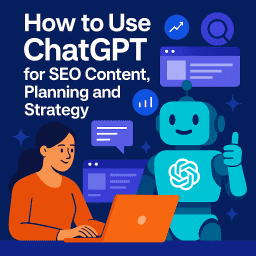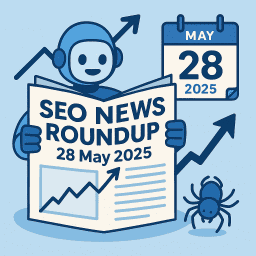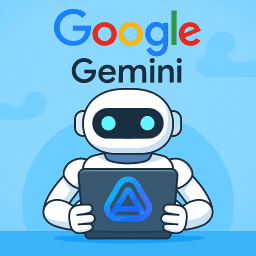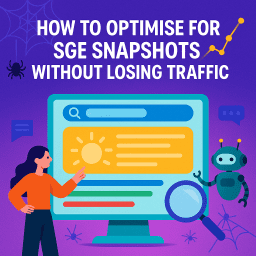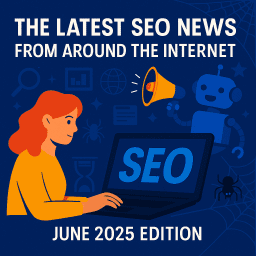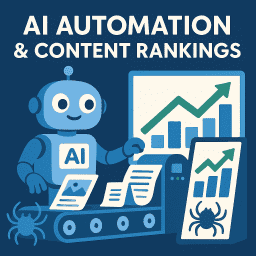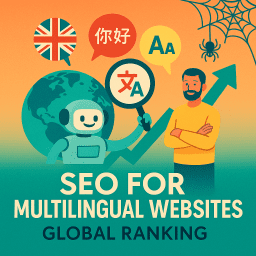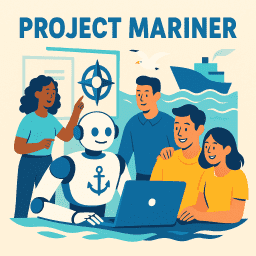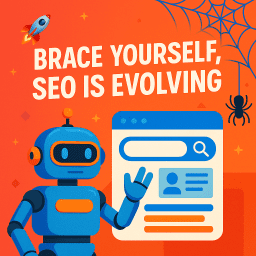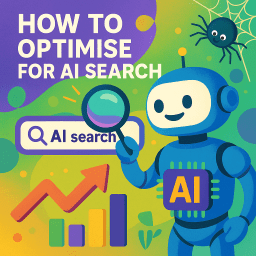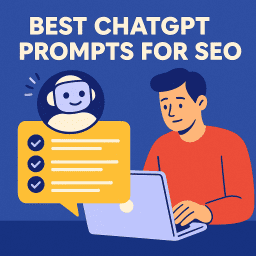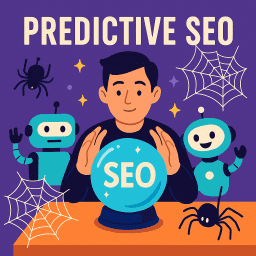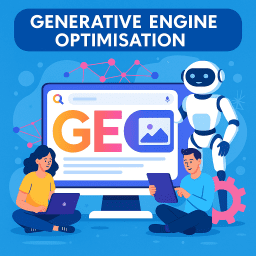Multi-AI SEO: Ranking in Perplexity, Gemini, and Beyond
How to optimise for search when AI platforms don’t play by the same rules.
🤖 One Query, Two Completely Different Answers
In the Google era, search was largely unified – you optimised for one algorithm and hoped to rank well across all devices. Now, the AI search landscape is fragmenting. Ask the same question in Perplexity and Google Gemini, and you may get entirely different answers, sources, and even facts. That’s not just a curiosity – it’s a wake-up call for SEOs.
Welcome to the age of Multi-AI SEO.
Why Multi-AI SEO Matters Now
- Fragmentation of AI search — Users are splitting between Perplexity, Gemini, ChatGPT Search, Kagi, and others.
- Differing source preferences – Some AIs pull heavily from live web data, others lean on pre-trained models and trusted domains.
- Impact on visibility – You could dominate one AI ecosystem and be invisible in another.
- Brand perception risk – If your business is absent in a user’s chosen AI search tool, you don’t exist in their decision-making process.
How Perplexity, Gemini, and Others Rank Content
Each AI search engine has its own “diet” – preferred data sources, ranking signals, and content styles it favours. Understanding these differences is the first step to cross-AI visibility.
- Perplexity: Scrapes live web content in real time, cites multiple sources per answer, and rewards structured, fact-rich content that loads quickly.
- Gemini: Combines Google Search index, Knowledge Graph data, and AI summarisation, applying Google’s Helpful Content principles and E-E-A-T guidelines.
- ChatGPT Search: Generates answers from a hybrid of live browsing and its training data; prefers clear, conversational, context-rich answers.
- Kagi / Niche AI: Smaller AI search tools may focus on niche authority, community-driven sources, or user-curated link graphs.
When Perplexity and Gemini Disagree
Different ingestion methods mean that the same query can yield entirely different answers. For example:
- Query: “Best places to retire in Europe”
- Perplexity: Cites a travel blog with 2025 cost-of-living data.
- Gemini: Summarises OECD data from 2023 and pulls a snippet from a government tourism site.
These differences influence trust. A user who sees you cited in Perplexity may view you as the authority, but someone using Gemini might never encounter your brand at all.
The Risks of AI Search Fragmentation
- Brand credibility risk – Inconsistent AI answers can undermine trust if your brand appears in one but not the other.
- Loss of click-through – If you’re absent from AI citations, you lose visibility for that platform’s entire audience.
- Algorithm volatility – AI models update faster and less predictably than traditional search engines, so rankings can shift overnight.
Optimisation Strategies: Perplexity
- Ensure your site is crawlable with no accidental blocking in robots.txt.
- Use structured data (schema) to make facts machine-readable.
- Provide explicit citations and reference authoritative sources – Perplexity rewards credibility.
- Publish content in well-defined topical clusters to build authority in specific niches.
- Optimise for speed – Perplexity tends to favour fast-loading, lightweight pages.
Optimisation Strategies: Gemini
- Follow Google’s Helpful Content guidelines – depth, originality, and clear intent targeting.
- Reinforce E-E-A-T (Experience, Expertise, Authoritativeness, Trustworthiness) with author bios, credentials, and sources.
- Maintain strong Core Web Vitals and a mobile-first design.
- Use comprehensive schema types – Article, FAQ, Product, Event, and HowTo where relevant.
- Build a strong internal linking strategy to reinforce topical authority.
Optimisation Strategies: Other AI Platforms
- ChatGPT Search: Optimise for conversational readability – answer questions directly and use natural language.
- Kagi / niche AIs: Focus on ultra-specific expertise, niche backlinks, and community trust signals.
- Test how your content surfaces for target queries by manually prompting each AI.
How to Track Your Presence Across AI Platforms
- Run your target queries across multiple AI search tools monthly.
- Document where your content is cited (and where it’s missing).
- Track citation formats – some AIs link prominently, others bury citations in drop-downs.
- Monitor changes after publishing updates to see which platforms respond fastest.
Future-Proofing Your SEO for Multi-AI Environments
- Create multi-format content – factual for Perplexity, conversational for ChatGPT Search, and in-depth for Gemini.
- Double down on credibility markers: verified authorship, outbound citations, and contact transparency.
- Publish in formats AI likes to reference – Q&A pages, data tables, timelines, and expert guides.
- Stay agile: AI models change faster than Google’s core updates; be ready to adapt monthly, not yearly.
“Multi-AI SEO is like multi-channel marketing – you can’t afford to dominate in one and disappear in the rest. Visibility has to be everywhere the conversation is happening.” – David Roche
What the Experts Are Saying
- “Optimising for AI means understanding its preferred diet of data – not just the old Google playbook.” – Lily Ray
- “Cross-AI visibility will be the next competitive edge. Early adopters will own the space.” – Rand Fishkin
- “The same brand appearing in multiple AI results builds trust far faster than being in one.” – Aleyda Solís
Final Thoughts
The shift from a single dominant search engine to multiple competing AI platforms is one of the most significant changes in SEO since Google’s rise. Perplexity, Gemini, ChatGPT Search, and others are shaping search experiences in different ways – and they’re not always aligned. That means your SEO strategy can no longer be one-size-fits-all.
Success in this new landscape requires agility. You must understand each AI’s preferences, adjust your content formats accordingly, and monitor your presence across platforms just as closely as you do in Google Search Console. The brands that win will be those that maintain consistent visibility and trust across all major AI ecosystems.
While this may feel like more work, it’s also a huge opportunity. AI search is still in its formative years, and early adopters can establish themselves as authoritative sources that these platforms repeatedly cite. The sooner you adapt, the more likely you are to own valuable AI answer space before the competition wakes up.
Multi-AI SEO isn’t about chasing every algorithm – it’s about creating adaptable, credible content that stands strong no matter where, or how, it’s surfaced.
Also read
llms.txt Explained: AI Crawler Rules for Websites
Frequently Asked Questions
What is multi-AI SEO?
Multi-AI SEO is the practice of optimising your website so it ranks well across multiple AI search platforms like Perplexity, Gemini, and ChatGPT Search.
Why do Perplexity and Gemini give different answers?
They use different data sources and ranking systems — Perplexity scrapes live content, while Gemini blends Google’s index, Knowledge Graph, and AI summarisation.
Which AI search engines should I focus on?
Start with the most popular in your industry. Currently, Perplexity, Gemini, and ChatGPT Search are leading, but niche AIs may matter in specific markets.
How can I see if my site is cited in AI search results?
Manually run your target queries in each AI platform and check if your site is listed or linked as a source.
Do I need different content for each AI search engine?
Often, yes. Perplexity prefers structured factual content, while Gemini rewards in-depth, Google-aligned content, and ChatGPT Search values conversational tone.
Is multi-AI SEO replacing Google SEO?
No — Google search remains important, but multi-AI SEO ensures visibility where AI-powered answers are becoming the default.
How often should I check my rankings in AI platforms?
Monthly is a good starting point, but weekly monitoring may be necessary for competitive niches.
What role does structured data play in multi-AI SEO?
Structured data helps AI platforms understand and accurately cite your content, increasing the chance of being referenced.
Can small businesses compete in multi-AI SEO?
Yes — agility and niche expertise can help smaller sites outperform larger brands in AI search rankings.
Will AI search engines standardise their results in the future?
Unlikely. Differentiation is part of their competitive strategy, so optimising for each will remain important.
Video Recap – Multi-AI SEO: Optimising for Perplexity, Gemini & ChatGPT
This short video walks you through the key ideas behind Multi-AI SEO and why it matters in today’s search landscape. Just as the article explains, people now turn to different AI search engines depending on what they need – quick summaries, deeper context, or conversational answers.
This video highlights how Perplexity, Gemini, and ChatGPT interpret content, why clarity and structure matter so much, and how creating consistent, easy-to-understand pages helps every AI system read your website correctly. Watch the breakdown below to see how Multi-AI SEO works in practice and how you can apply it to your own site.



